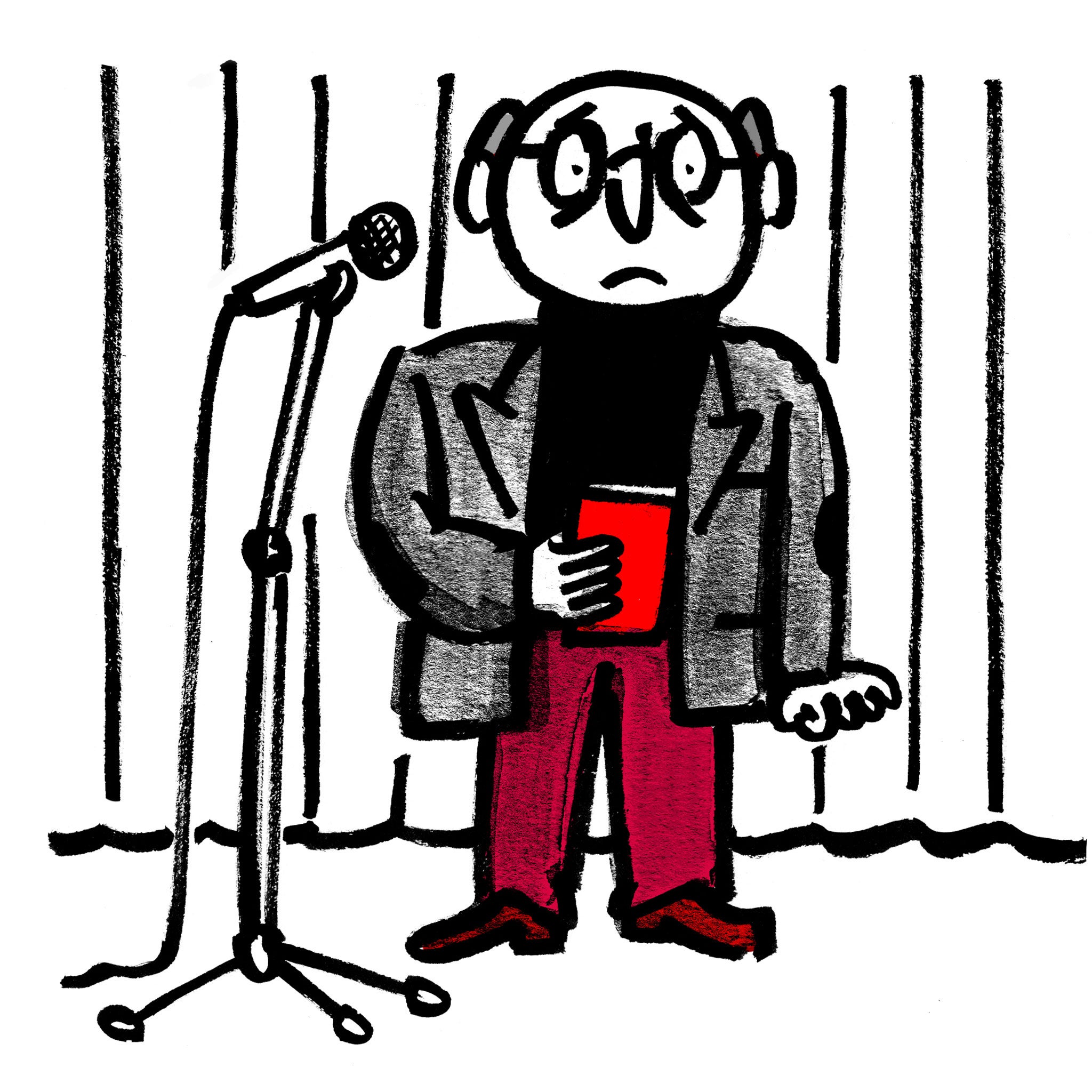AD Penumbra's reputation as a highbrow poet has far exceeded the rewards of his academic career

Alceste Diocletian Penumbra has been lecturing in Oriental Languages at one of the smaller Cambridge colleges since the late 1980s. He has known no other employment. Yet he would be the first to contend that language-teaching is by no means the chief interest of an exceptionally quiet and blameless life.
Nearly 20 years have passed now since AD Penumbra, as he styles himself, burst into print with a notably slim volume of verse entitled Divagations, and since that time his reputation as a poet has far exceeded the rather sparse rewards of his academic career.
From an early stage – almost before the publication of his second collection, Amplifications (1999) – there was some question as to what kind of writer Penumbra might be. In one of the few "statements" he has vouchsafed to a poetry magazine, he declared that he was concerned with "one or two slight metaphorical irregularities" and, additionally, that he considered the "spaces between words quite as important as language itself". When pressed by students of his work, he becomes uncomfortable, and there the matter of his inspiration has had to rest.
Although by no means prolific, Penumbra has been careful to keep his name before the public. Amplifications was quickly followed by Appetencies (2002) and Competencies (2005). The latter contained the admired "Brubeck on Everest" ("crazed multiplicity of hail-stones struck him/ Olympus-flung/ yet still he cramponed on in 5/4 time"), whose figurative language, critics suggest, continues to reflect his interest in both jazz and mountaineering. The more sombre tone in his recent Shriven by the Zodiac has been attributed to the death of a much-loved cat.
Small, bald and bespectacled, Penumbra rarely appears beyond his college gates. Little is known of his private life, although "Eros Shrine Candle" in Appetencies ("Down into the ripe mire I plunge/spindle-shanked/ and consummation-hungry") has been described as his solitary love poem. Once, in the early 2000s, he was persuaded to appear at a Cambridge arts festival. Sadly, the event was not a success. A somewhat halting recitation of "Exteriorities", which had recently appeared in the London Review of Books, was received in silence, after which a member of the audience asked him if he preferred Philip Larkin to Ted Hughes. The expression on Penumbra's face during this exchange was described by onlookers as "pained".
Join our commenting forum
Join thought-provoking conversations, follow other Independent readers and see their replies
Comments
Bookmark popover
Removed from bookmarks